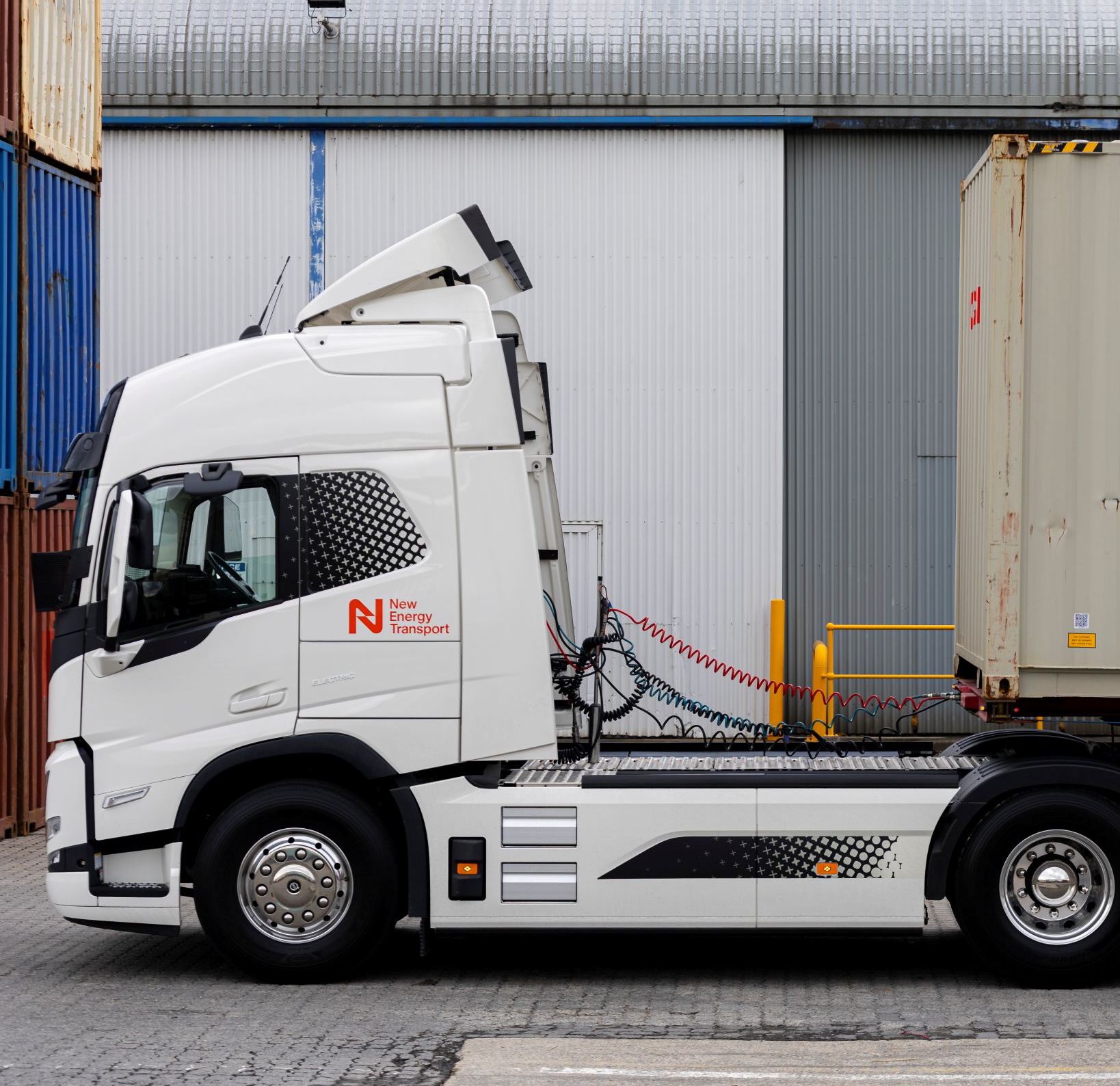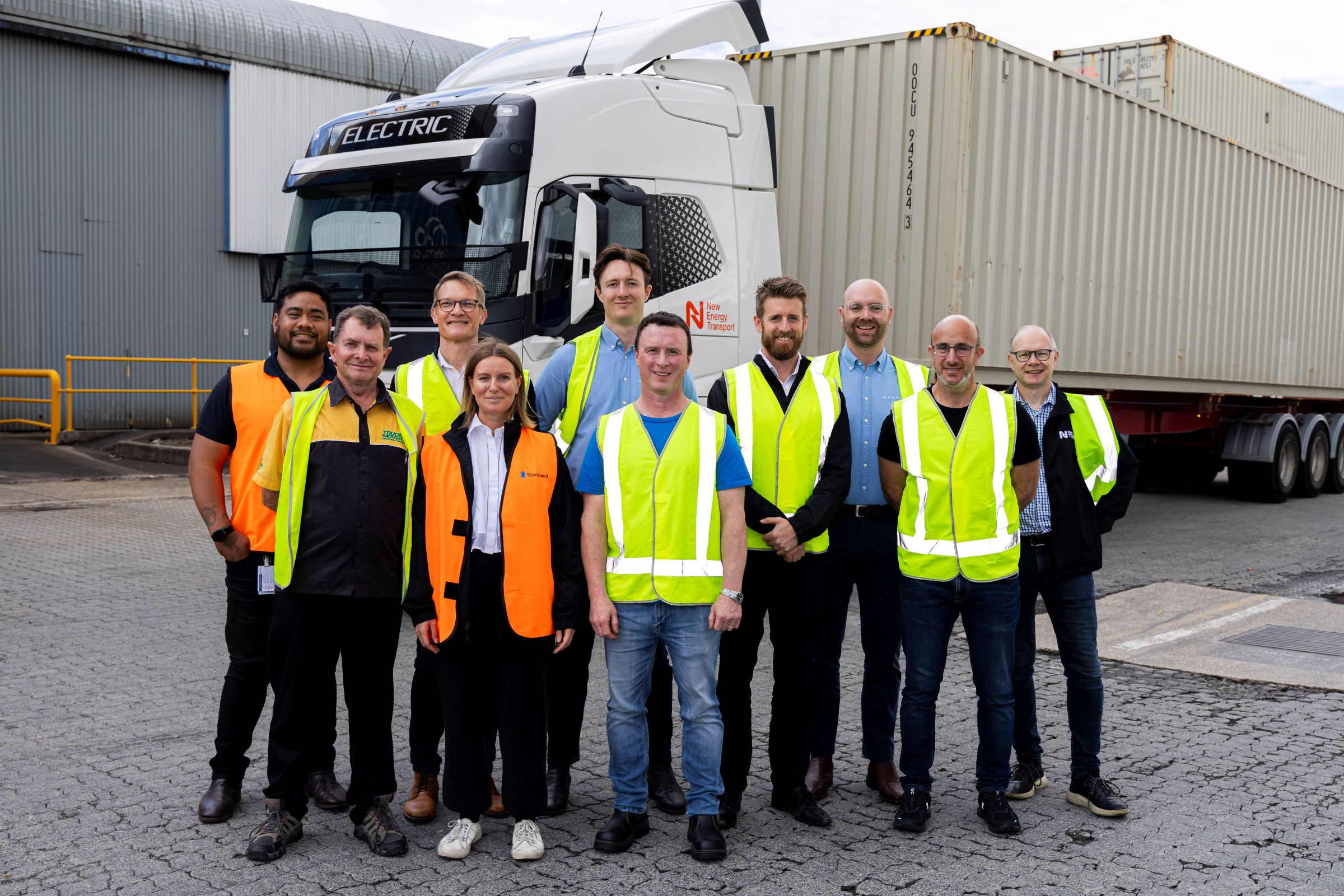New Energy Transport partners with Who Gives A Crap: Showing that zero-emission heavy road freight is commercially viable today

New Energy Transport is proud to announce its partnership with iconic Australian toilet paper brand Who Gives a Crap (Good Goods Pty Ltd).
NET and WGAC have agreed to work together to integrate NET’s zero-emission transport solution into WGAC’s operations to reduce greenhouse gas emissions across their supply chain. The agreement includes a commitment from WGAC to allocate 50% of their Port Botany freight requirements to NET.
NET and WGAC recently teamed up to conduct a full commercial demonstration, moving a container from Port Botany to WGAC's warehouse in Yennora and back again, using a Volvo electric prime mover.

“We’ve partnered with Who Gives a Crap because they’re very focused on sustainability.” said NET co-CEO Daniel Bleakley. “We’re incredibly proud and excited to have a partner who’s as passionate about electrifying heavy road freight as we are.”
WGAC director of sustainability Bernard Wiley has been working closely with NET to come up with a zero-emission solution that integrates with their current operations.
“Decarbonisation of our supply chain is a big priority for Who Gives a Crap” said Wiley. “One of the hardest to decarbonise sectors for us is road freight, so we wanted to be part of this to show that Who Gives a Crap can be a leader in that area.”
“We want to be able to show other companies in Australia that decarbonisation in the road transport sector is real, and that it can be done right now.”
“As a small to medium sized business, we can really push this and we’re actually making it happen with partners like New Energy Transport.” said Wiley. “Why wait, let’s just get it done.”
Electrifying heavy road freight key to achieving new 2035 emissions targets
The partnership comes as the Australian government sets its new emissions target of 62-70% by 2035. With an 82% emissions reduction target for the electricity sector by 2030, focus is rapidly shifting to transport which is on track to be the highest emitting sector in the Australian economy by 2030.
Within the transport sector, road freight accounts for 40% of all emissions, and heavy vehicles dominate this share. Australia is the second most road-freight-dependent country in the world. Despite making up only 3% of all commercial vehicles, heavy articulated trucks in Australia are responsible for nearly 80% of all tonne-kilometres.

The high energy consumption (in this case diesel) that comes with moving all that mass makes heavy trucks a prime target for high-impact emissions reduction. The high energy costs associated with heavy trucking also present a huge economic opportunity for electric vehicles to leverage their competitive advantage: energy efficiency.
NET’s integrated business model set to revolutionise road freight
By combining low-cost renewable energy and high-speed charging, heavy electric trucks can reduce overall energy costs and compete with diesel trucks on a per km basis.
New Energy Transport is Australia’s first zero-emission trucking company. By vertically integrating renewables and high-capacity charging, NET can offer zero-emission road freight at matched diesel-freight pricing. NET’s model is the first of its kind in Australia and has the potential to revolutionise the industry.

NET co-CEO Fredrik Pehrsson is a former head of innovation at the Swedish truck manufacturing giant Scania. Pehrsson says that electric heavy trucks are capable of matching and even exceeding diesel truck productivity. Pehrsson was involved in several major electric prime mover pilot projects during his career with Scania and is now on a mission to apply that knowledge to the Australian road freight sector.
“We’re all coming together now to prove that it’s actually possible to have the same productivity as diesel trucks but without any emissions.” said Pehrsson.
“With its high-density road freight corridors and abundant low-cost renewable energy, Australia is actually one of the best places in the world for heavy electric trucking.”
New Energy Transport is currently developing its first integrated heavy electric trucking depot and plans to commence initial operations in mid-2026. The company has signed MoUs with five major road freight buyers and has strong support from stakeholders including equipment and energy suppliers as well as local, state and federal government.
NET is putting together a consortium of transport buyers to commit to its initial zero-emission freight capacity at its first site.
For more information contact info@newenergy.com.au
.svg)
